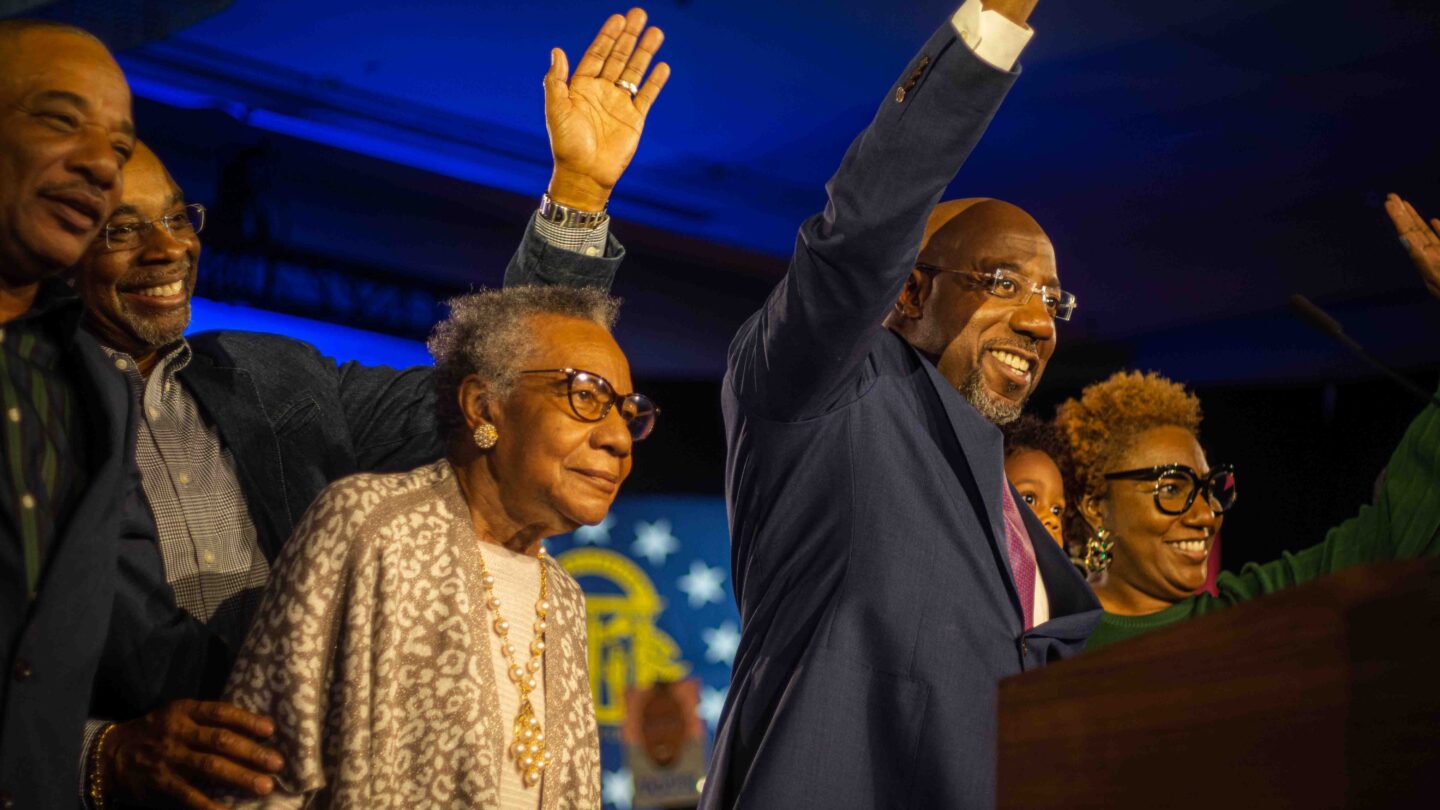Warnock delivers 51-seat Senate for Democrats, and much more

For Senate Democrats, an oh-so-slim 51-49 majority never sounded so good.
Sen. Raphael Warnock’s victory in swing-state Georgia gives Democrats a welcome “lift,” Senate Majority Leader Chuck Schumer said Wednesday at the Capitol — newly confident of sidelining Trump-inspired Republicans in Congress and reaching across the aisle to other GOP lawmakers to deliver on bipartisan priorities with President Joe Biden.
“If we can get some bipartisan things done, it will of course be better for the country. And it will be better for the Republican Party,” he said.
Tuesday’s election was for just one seat, but Warnock’s win in the tight runoff provides an unexpected capstone to the midterm election cycle for his party. It makes easier for Senate Democrats to organize and govern, and provides a crucial edge in a divided Congress as Republicans take hold of the House.
Gone is the especially intense political pressure of a 50-50 Senate that required all Democrats to toe the line — and made it possible for a single senator, notably Joe Manchin, to buck party priorities.
When the new Congress assembles in January, the extra seat will give Senate Democrats a solid majority that provides greater control over not just floor votes but also the committees, which are the backbeat of legislating.
And mostly gone will be the days when Capitol Hill came to a standstill awaiting Vice President Kamala Harris’ motorcade for her role of breaking tie votes — particularly for Biden’s nominees — which she has had to do more often than any predecessor.
“Chuck Schumer’s job is going to get a lot easier,” said Sen. Tim Kaine, D-Va.
After the longest evenly split Senate in modern times, the new dynamic ensures the chamber will serve as a barrier to legislation from the Republican House that Democrats disagree with — and a potential bridge for bipartisan deal making as Republicans assess the post-Trump landscape.
While it still takes 60 votes to overcome a filibuster and advance most bills in the Senate, there will be ample grounds for compromise, particularly if Republican leader Mitch McConnell is eager to show voters his party can deliver ahead of the 2024 presidential and congressional elections.
McConnell was silent Wednesday on Warnock’s victory and the new political reality.
In January, for starters, Democrats will have an easier time using their 51-49 majority for simple tasks of governing, including votes on Biden’s nominees to judicial and executive positions, which Republicans have wielded as weapons.
The same goes for committee action. The Democrats will now have full power to send legislation to the Senate floor, overcoming Republican objections that can drag out the process. They also will have subpoena power, which they plan to use for investigating corporate America.
Judiciary Committee Chairman Dick Durbin, D-Ill., had kind words for the top Republicans on what has been his evenly divided panel.
“Chuck Grassley is a friend, we’ve been able to work together. And I’m confident we can do that again with Senator Graham,” said Durbin, referring to Lindsey Graham of South Carolina, who will take Grassley’s place in the new Senate.
“But,” said Durbin, “we’re in a better position to bargain.”
Key Republicans had regrets Wednesday over their failure to pick up that vital 51st seat, blaming their losses in large part on the party’s focus on relitigating the 2020 election that Donald Trump, the former president, lost to Biden.
“That was a losing argument,” said Sen. John Thune of South Dakota, the No. 2 Republican, about the stolen election claims.
His party lost the GOP-held seat in Pennsylvania that was open due to a retirement. Every Democratic incumbent won, an unexpected accomplishment and a first for a party in power in decades.
As Republicans struggle to emerge from the midterms, Democrats intend to capitalize on the GOP’s Trump divisions and win over some Republicans for bipartisan projects — much the way they did this session in passing a bipartisan infrastructure bill, a computer chips package and others.
“There are a good number of Republicans in the Senate and the House who are not MAGA,” Schumer said, referring to Trump’s campaign slogan, Make America Great Again.
“It is my intention to reach out to them” and see how both sides can work in a bipartisan way, he said.
“You say, ‘Oh, that will never happen,’” Schumer said, answering likely skeptics. “Well look at what happened this summer with 50-50.”
Schumer declined to outline the party’s agenda for the new term, saying it’s still a work in progress. Both parties are expected to take their annual retreats at the start of the year to assemble their priorities.
“It gives us just a lift — the fact that we got the 51 votes,” Schumer said.
Sen. Bernie Sanders, the influential Vermont independent who caucuses with the Democrats, said the increased majority will make it “much easier to go forward in a progressive way.”








